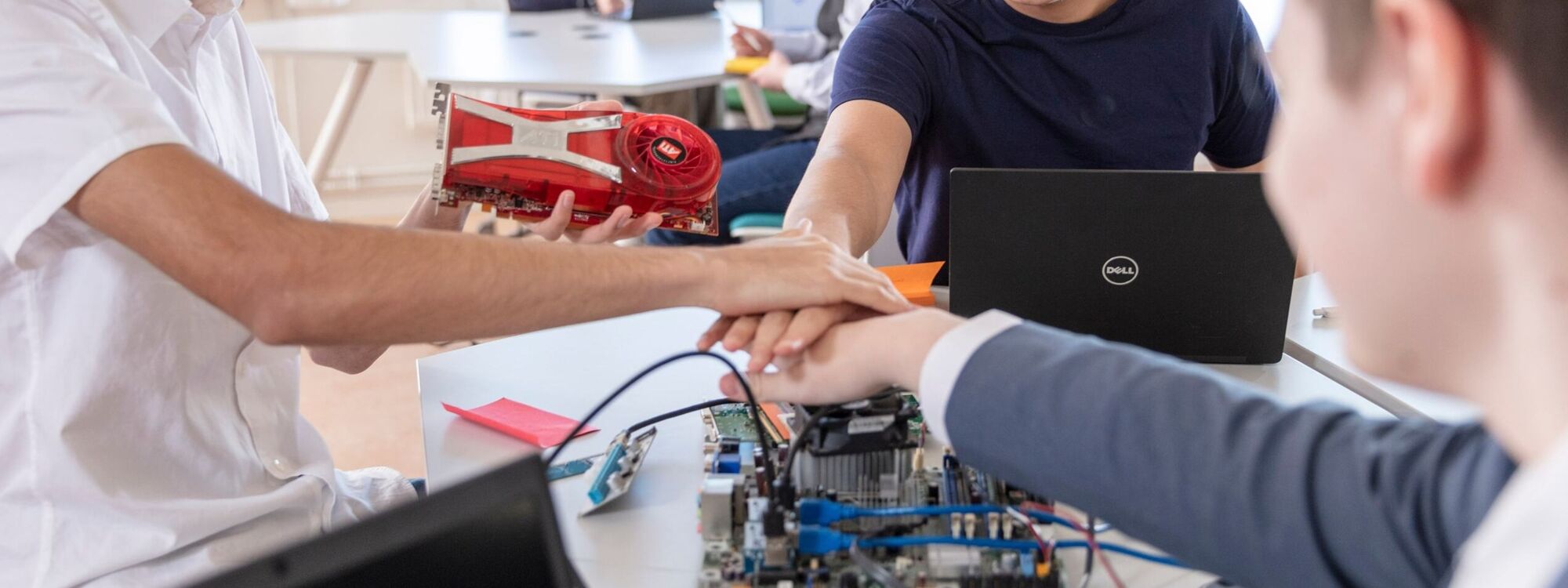- Home
- Academics
- STEAM Education
STEAM Education
Why STEAM?
STEAM is our educational approach to learning that uses Science, Technology, Engineering, the Arts, and Mathematics as access points for guiding student inquiry, dialogue, and critical thinking. The end results are students who take thoughtful risks, engage in experiential learning, persist in problem-solving, embrace collaboration, and work through the creative process. These are the innovators, educators, leaders, and learners of the 21st century!
STEAM learning stimulates innovation, creativity, critical thinking, and problem-solving skills, resulting in a well-rounded, multi-faceted child. It encourages children to think about what they're learning in a more connected, holistic way. Through STEAM, children develop the skills and attributes to navigate the world around.
Our learning environment is set up so that children can independently engage in hands-on, concrete and real life experiences. Research suggests that children’s communication and collaboration skills flourish better in well-structured environments. Every class has a variety of learning areas that support children in their holistic development, allowing children to develop their ideas, learn through trial and error and use all their senses to understand the world around them. Our Early Years Practitioners consistently observe the progress of the children which underpins their planning of next steps for each individual child.
STEAM-based programmes take an integrated approach to learning and teaching, which requires an intentional connection between curriculum learning objectives, standards, assessments, and lesson design/implementation.
Benefits STEAM Education:
- Prepares children for upcoming technological innovations
- Enhances problem-solving skills
- Greater understanding of concepts
- Instills creativity and innovation
- Teaches Teamwork, collaboration, and communication
- Encourages Risk Taking
- Complete Process Learning
- Builds Perseverance and Determination
- Fosters a love of learning
